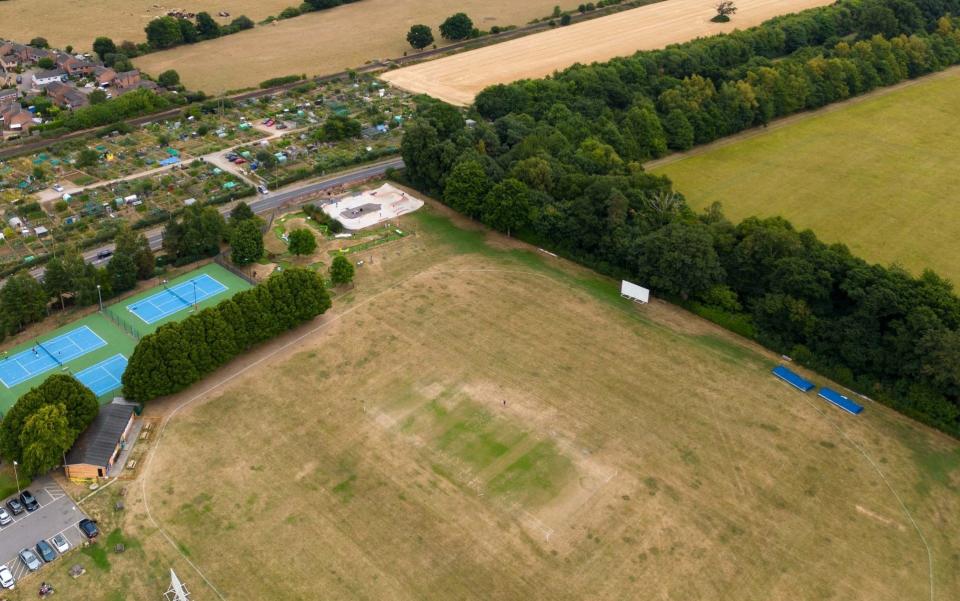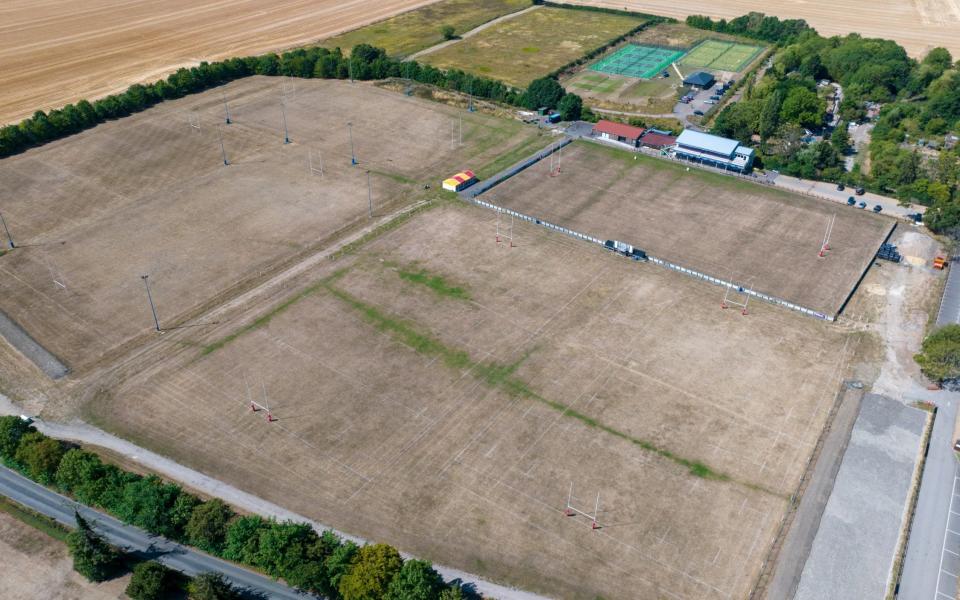Grass-roots clubs warned they could face legal claims over dry pitch injuries

Grass-roots sport is in a tug-of-war over heatwave season delays, as clubs express resistance to moving games despite lawyers warning they may be liable for injuries.
Rugby and football governing bodies have both said privately that there is serious resistance to being "overly nanny state" after sport was put on hold during Covid.
However, commercial insurance specialist Kevin Lawson, a partner at Browne Jacobson LLP, has warned of the risk of lawsuits if fixtures take place during the drought.
"We may see sporting injury claims quite frequently," he told Telegraph Sport. "Teams, leagues, referees even, as well as landowners of course, have got to take that seriously."
With temperatures still above 30C, the new amateur rugby season is under particular threat, with the Rugby Football Union ready to implement emergency measures, including more non-contact training and a greater use of plastic pitches.
However, in response to legal warnings over injuries, sporting chiefs said the situation is "complicated". "We know from conversations with clubs that if we announce blanket postponements, there will be uproar - it has to be case by case," one senior insider said. "We cannot be overly nanny state."
'There are plenty of 4G pitches out there'
Amid fears that leagues in the south-east - the worst affected by the hot weather - are now set to be heavily delayed, club officials have also urged governing bodies to agree to postponements only "as a last resort".
London Welsh, who now play as a phoenix club in Regional 1 South Central after going into liquidation in 2016, are among teams calling for fixtures to be juggled in the first instance so those with 4G pitches play at home first.
"I just hope if the RFU are going to make a blanket decision on it, they’re going to give us a couple of weeks to work things out," said Cai Griffiths, the club's director of rugby. "Because, I know the players do want to play. There are plenty of 4G pitches out there. It’s just juggling then who plays home and away."
Parched playing surfaces are also a growing concern in other sports, including football and cricket, as health experts warn players are at serious risk of injury.
To counter player heat exhaustion this weekend, meanwhile, the Premier League and English Football League emailed clubs to advise on "cooling breaks" if matches are being played above 30C.
"Both clubs should ensure that sufficient water and other drinks are available for both teams and the match officials," an email from the EFL says. The EFL has also shared Government advice for spectators, which was initially issued by ministers prior to the heatwave. "The main advice is stay hydrated, seek shade and look out for others," the EFL said.
As for playing surfaces, lawyers maintain that clubs at all levels should be cautious in the weeks ahead. Lawson said: "If you're in a professional sports arena, then ordinarily, participants are employees. So there's even higher obligations at a place of work. They will then have employers' liability cover to indemnify them for those risks."
Brain injury charity Headway has urged all sports authorities to issue "urgent guidance to grassroots clubs to prevent an increase in concussions as a result of playing on hard pitches". Progressive Rugby, the lobby group demanding better protections for players, also expressed support for competitions to be delayed to allow pitches to soften.

Rugby chiefs told Telegraph Sport on Wednesday that they were "monitoring the situation closely" as reports emerged of clubs being forced to postpone matches scheduled for this weekend with the heatwave forecast to extend until at least the end of the week.
The RFU's director of rugby development Steve Grainger said: "The RFU is very concerned about the impact of the heat and lack of rain on natural turf pitches at community clubs, which could affect players returning to contact rugby in September.
"We are looking at scenarios to help which include maximising use of artificial pitches [including the 28 owned and operated by the RFU] and promoting greater use of non-contact forms of the game."
The Surrey Rugby Reserve League - which is not run by the RFU - is already believed to have postponed the start of its campaign to October.

 Yahoo Sport
Yahoo Sport 





































